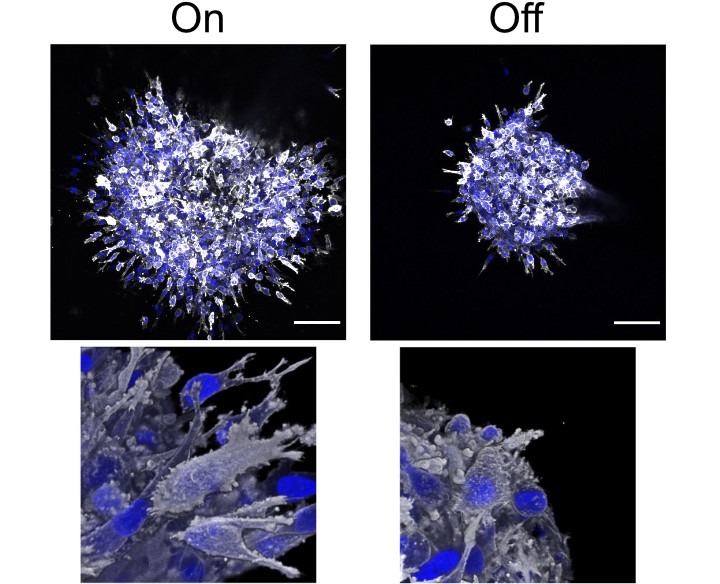Published on
Updated
Reading 1 min.
A French team has identified a mechanism capable of reducing the rapid development of metastases in aggressive breast cancers. A therapy targeting this protein could tomorrow prevent the appearance of new tumors and greatly improve the care of affected women.
The puzzle of aggressive breast cancers
Aggressive breast cancers are particularly difficult to treat because they respond poorly to available treatments and especially tend to spread quickly via metastases. But a team from the National Center for Scientific Research (CNRS) has just made a discovery that could revolutionize their care.
Researchers have discovered a key mechanism behind metastases. This spread of cancer cells is believed to be due to the SMYD2 protein, which diverts the activity of another protein, BCAR3, to the advantage of the cells. Known to be partly responsible for the adhesion and migratory capacity of cells, the action of BCAR3 is strongly stimulated by SMYD2.
Thus, in vitro experiments show that the development of metastatic cancer cells and their ability to migrate and invade their environment requires the presence, or at least stimulation, of SMYD2.
Objective: gain time to treat the primary tumor
Can we stop the spread of metastases by blocking this protein? To find out, scientists sought to inhibit SMYD2 in mice suffering from mammary cancer still at the primary stage.

Comparative analysis of the evolution of the stage of development of cancers between treated and untreated mice confirmed the inhibition of SMYD2, the blocking of its action on BCAR3 and the total absence of the appearance of metastasis.
Very promising, these results must be confirmed in humans before knowing whether they will tomorrow allow the development of an early therapy preventing the development of metastases in breast cancer. The goal of preventative treatment would be to provide more time for the medical team to identify and implement effective therapy against the primary tumor, or find an alternative for refractory tumors.
